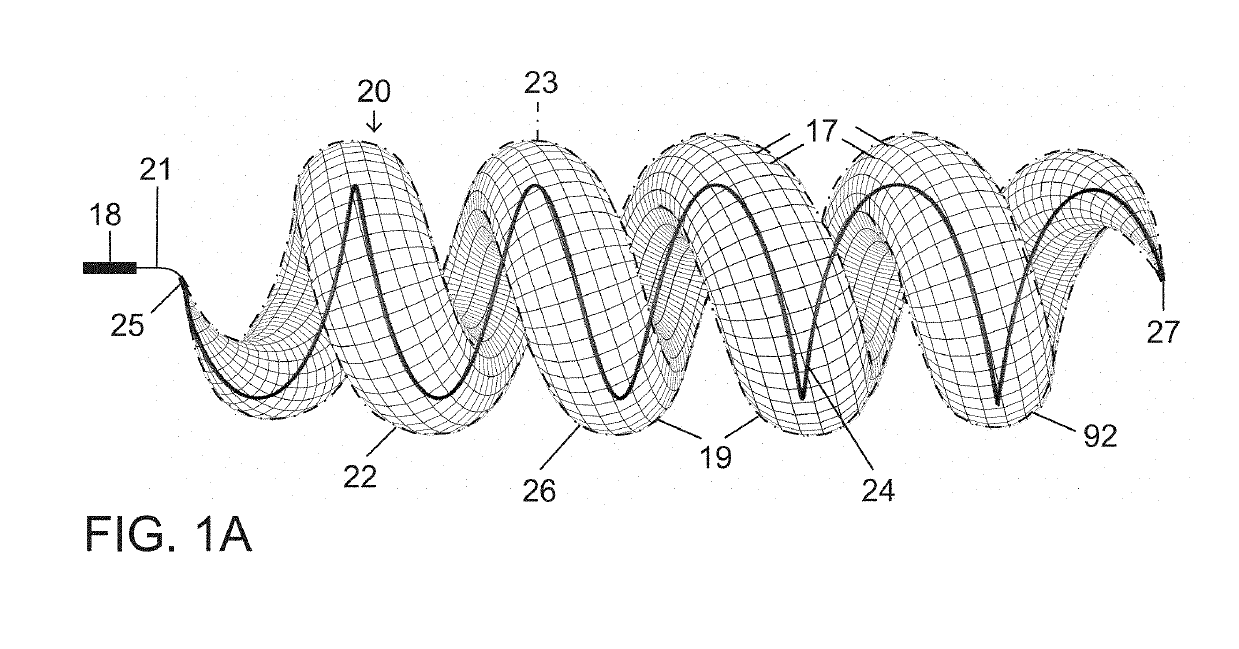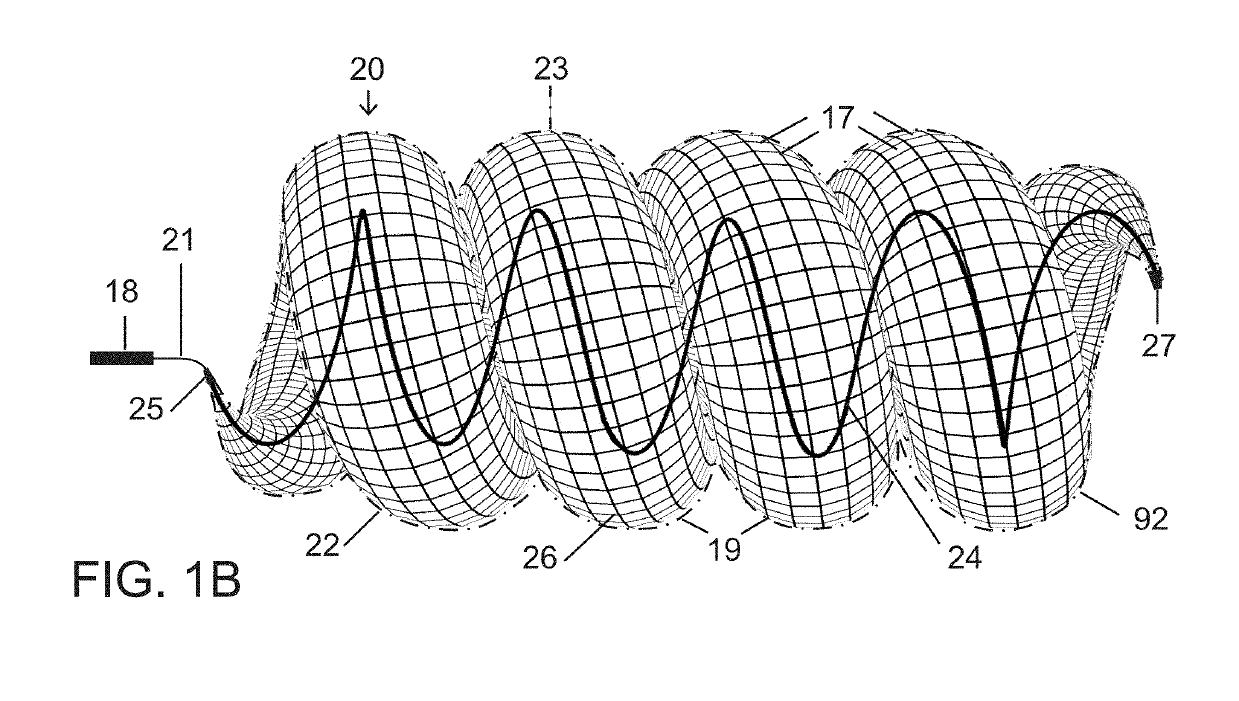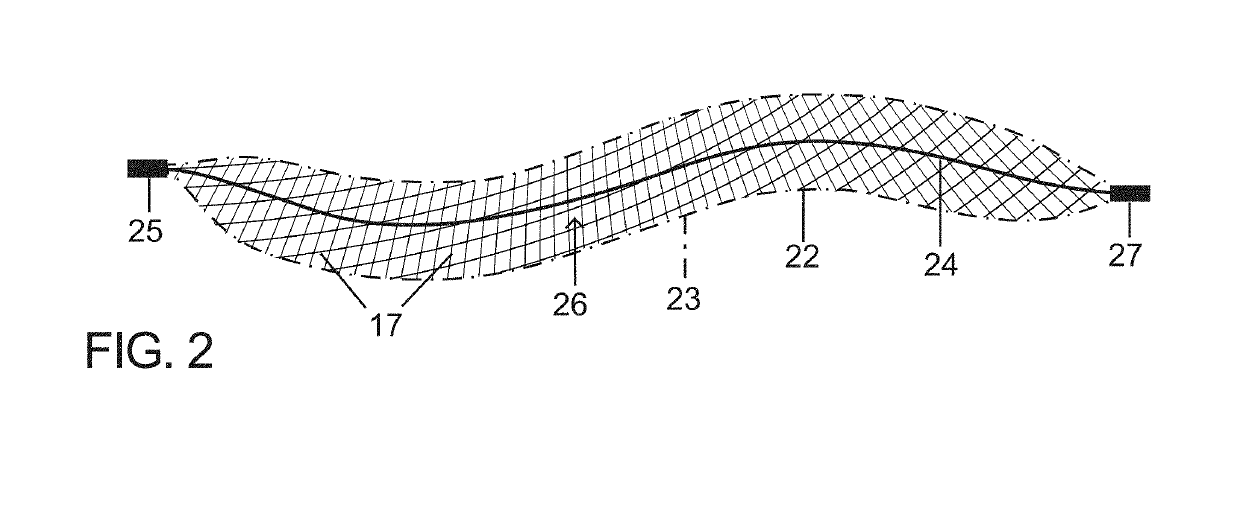Micro-macro endovascular occlusion device and methodology
a micro-macro endovascular and occlusion technology, which is applied in the field of micro-macro endovascular occlusion devices and methods, can solve the problems of increasing procedure time and potentially cost, detachable balloons being difficult to navigate through blood vessels, and coils being unreliable in their geometry and vascular space filling properties, etc., to achieve the effect of reducing the porosity of the plug wall, increasing the thrombosis rate, and promoting the thrombosis ra
- Summary
- Abstract
- Description
- Claims
- Application Information
AI Technical Summary
Benefits of technology
Problems solved by technology
Method used
Image
Examples
Embodiment Construction
[0065]The present vascular occlusion device or plug, e.g., plug 20 (FIGS. 1A and 1B), is deliverable through a microcatheter 18, which can occlude a wide range of vessel sizes from small to large, currently not possible with available microcatheter deliverable devices. The design allows for the occlusion of vessels both smaller and larger than 5 mm, the current upper limit for a microcatheter deliverable plug.
[0066]In an expanded deployment configuration as shown in FIGS. 1A and 1B, a self-expanding and self-configuring vascular plug or occlusion device 20 takes an expanded form of a three-dimensional spiraling tubular structure 22, optionally covered with an impermeable or partially permeable membrane 23, which allows for large vessel occlusion via microcatheter 18, currently not possible with available devices.
[0067]FIG. 1A shows relative distraction or separation of coiled segments or windings 19 of plug or occlusion device 20 while FIG. 1B shows relative compaction of the coiled...
PUM
 Login to View More
Login to View More Abstract
Description
Claims
Application Information
 Login to View More
Login to View More - R&D
- Intellectual Property
- Life Sciences
- Materials
- Tech Scout
- Unparalleled Data Quality
- Higher Quality Content
- 60% Fewer Hallucinations
Browse by: Latest US Patents, China's latest patents, Technical Efficacy Thesaurus, Application Domain, Technology Topic, Popular Technical Reports.
© 2025 PatSnap. All rights reserved.Legal|Privacy policy|Modern Slavery Act Transparency Statement|Sitemap|About US| Contact US: help@patsnap.com



